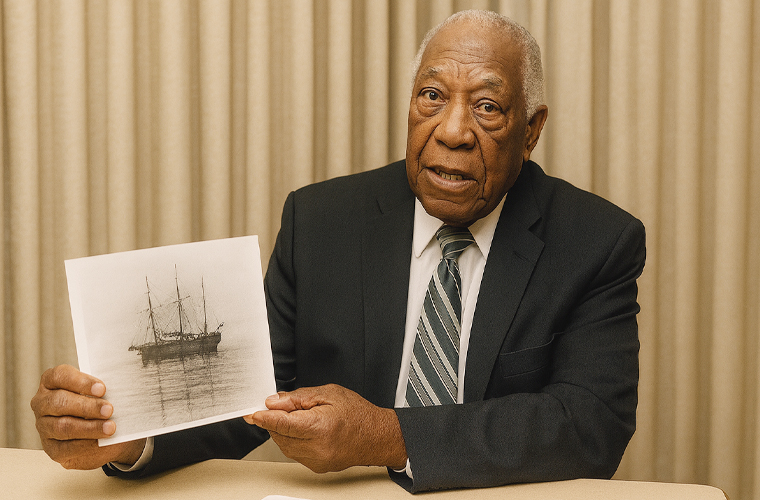George W. Gibbs, Jr., born on November 7, 1916, in Jacksonville, Florida, left an indelible mark on history through his trailblazing achievements and dedication to civil rights. As a young man, he relocated to Brooklyn, New York, where he attended Brooklyn Technical School and later earned his GED. During the 1930s, he contributed to community development through his service in the Civilian Conservation Corps, a New Deal program aimed at providing employment and environmental conservation.
In a historic milestone, Gibbs became the first person of African descent to set foot on Antarctica during Admiral Richard E. Byrd’s third expedition to the South Pole from 1939 to 1941. Selected from over 2,000 Navy applicants, Gibbs was one of only 40 men chosen to join this groundbreaking mission aboard the USS Bear, a storied wooden vessel originally a floating museum before being refitted for the Antarctic journey. On January 14, 1941, Gibbs made history as the first to step off the ship onto the icy continent, serving as a vital member of the crew supporting the expedition’s ice party. His role required resilience and adaptability in one of the harshest environments on Earth, which contributed significantly to the mission’s success.
During World War II, Gibbs served with distinction as a naval gunner in the South Pacific, demonstrating courage under fire. After the war, he continued his naval career, ultimately retiring in 1959 after 24 years of service with the rank of Chief Petty Officer. His commitment to education led him to pursue higher learning, and he graduated from the University of Minnesota with a Bachelor of Science degree in Education, showcasing his determination to expand his horizons beyond military service.
On September 26, 1953, Gibbs married Joyce Powell in Portsmouth, Virginia, beginning a lifelong partnership. In 1963, the couple settled in Rochester, Minnesota, where Gibbs embarked on a professional career at IBM. There, he held roles as a corporate housing administrator and international assignment representative, leveraging his organizational skills and global perspective. After retiring from IBM in 1982, Gibbs founded and managed his own employment agency until his final retirement in 1999, reflecting his entrepreneurial spirit and commitment to economic empowerment.
Gibbs was a passionate advocate for civil rights, helping to establish the Rochester Chapter of the National Association for the Advancement of Colored People (NAACP) in 1966. His leadership extended to both local and national efforts to advance racial equality, earning him widespread respect. Additionally, he served as president of the Rochester Kiwanis and the Rochester chapter of the Minnesota Alumni Association, fostering community engagement and civic pride. His humanitarian contributions were recognized with the George Gibbs Humanitarianism Award from the Rochester NAACP, among numerous other accolades.
In 1974, Gibbs made headlines when he applied for membership to the Rochester Elks Club, becoming the first African American to do so. Initially denied entry, his persistence challenged racial barriers, ultimately helping to desegregate service clubs in Rochester and drawing national attention to issues of exclusion in community organizations.
George W. Gibbs, Jr. passed away on November 7, 2000, on his 84th birthday, leaving behind a legacy of courage, service, and advocacy. His contributions were commemorated in Rochester, Minnesota, with the opening of George Gibbs Elementary School on October 11, 2009, a testament to his impact on education and community. In 2002, the city honored him by renaming West Soldiers Field Drive in his name. On September 2, 2009, Gibbs Point in Antarctica was named in his honor, forever marking his historic presence on the continent. His life stands as a powerful example of breaking barriers, serving others, and creating lasting change.

